Fact-checking 'Oppenheimer': Was Albert Einstein really a friend? What's true, what isn't
- Oops!Something went wrong.Please try again later.
- Oops!Something went wrong.Please try again later.
- Oops!Something went wrong.Please try again later.
- Oops!Something went wrong.Please try again later.
- Oops!Something went wrong.Please try again later.
Christopher Nolan’s three-hour movie “Oppenheimer” is getting rave reviews and shaping up as an early Oscar favorite.
But years ago, one man doubted that the complex tale of a hero-turned-villain nuclear scientist could be accurately told on the big screen.
“I was very skeptical Hollywood could do anything with a 700-page book,” says Kai Bird, who, along with his late writing partner Martin J. Sherwin, won the 2006 Pulitzer Prize for “American Prometheus: The Triumph and Tragedy of J. Robert Oppenheimer.”
That book, which is back on bestseller lists thanks to the movie, was the source material for Nolan’s 180-page screenplay. Bird got a glimpse of that script early on and his fears vaporized. “There are no major historical bloopers,” he says.
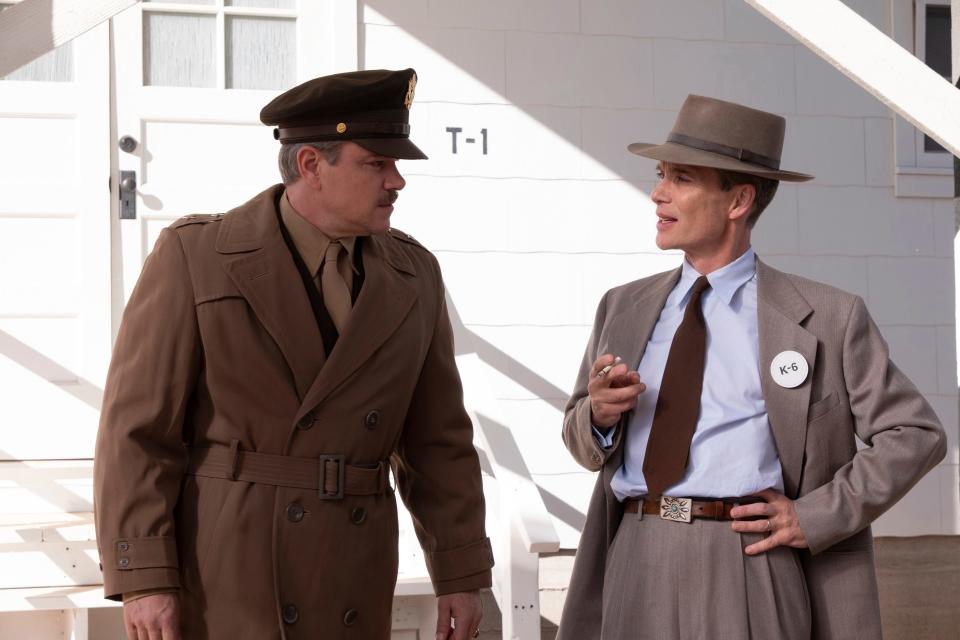
But there is a lot to discuss, and plenty of historical nuances. Bird takes us through the movie’s most explosive moments:
Were Manhattan Project scientists worried an atomic explosion would set fire to Earth?
“They were as calculations were made that showed it might be a possibility,” says Bird. Specifically, the fear was that a detonation would use the oxygen in the atmosphere to fuel a never-ending series of explosions.
The concern was so great that Oppenheimer, played by Cillian Murphy, took a train from the New Mexico site of the lab work back east to consult with physicist Hans Bethe.
“Fortunately, Bethe took a look at the math and came to the conclusion that the likelihood of setting fire to the atmosphere was near zero,” says Bird. “And they went on with their work.”
Did Robert Oppenheimer and Albert Einstein really have conversations about the bomb at Princeton?
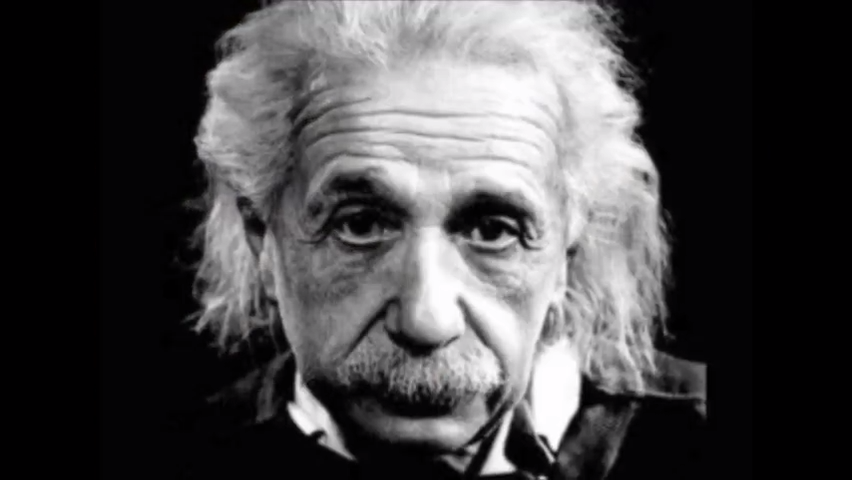
Yes. Both men were attached to Princeton University in the 1940s, Oppenheimer as director of the school's Institute for Advanced Study and Einstein as a professor.
“They had offices down the hall from each other, and I’m sure they took walks together by that pond,” he says. But the two conversations between the physics giants, as portrayed in “Oppenheimer,” were “really just something that Nolan imagined.”
In the first, Oppenheimer expresses concern about igniting the atmosphere, and in the second, after the war ends, Oppenheimer is afraid of the power he has unleashed, which leaves Einstein speechless.
How accurate is the 'Oppenheimer' Trinity Test that shows the atomic bomb being detonated in the New Mexico desert?
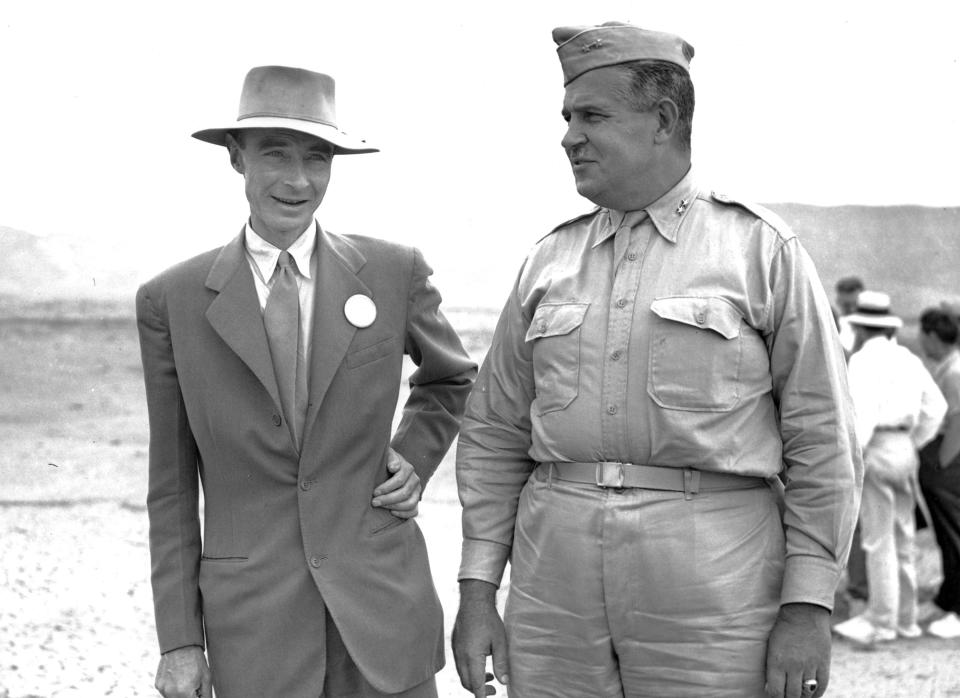
“That is wholly accurate, down to the distance described, which was roughly 10,000 yards from the bomb site,” says Bird.
“In the movie, you see (physicist Edward) Teller putting on sunscreen and dark glasses, and (young physicist) Richard Feynman did pass on putting glasses on because he said the windshield of the truck he was sitting in would be enough protection,” he says. “There are records of all of this.”
What were Robert Oppenheimer's relationships with women like?
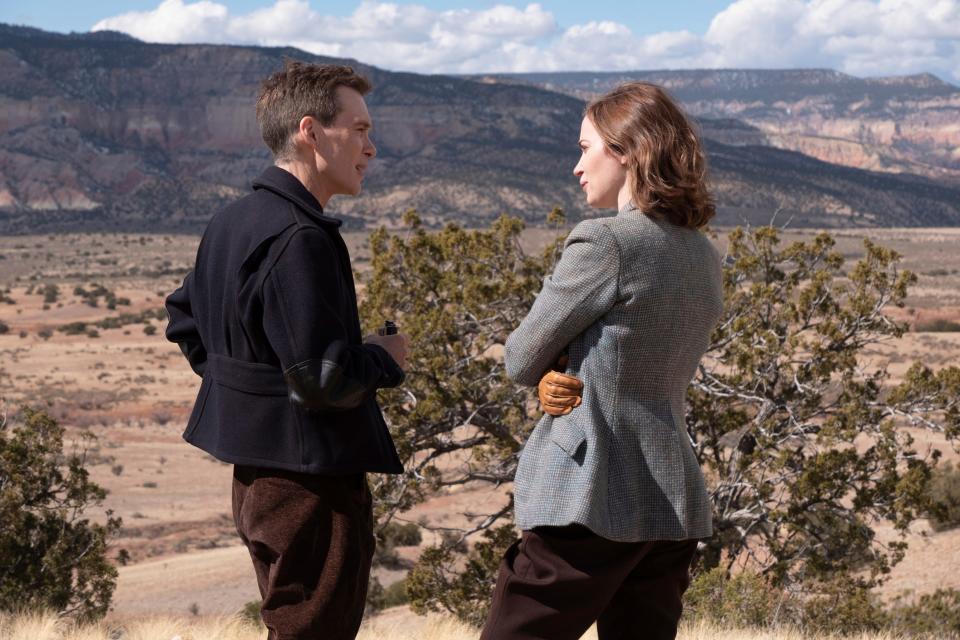
In a word, fiery, beginning with his first big love affair with Jean Tatlock, played by Florence Pugh in the film. He proposes marriage to her repeatedly but she declines.
“In our book, we have a lot of evidence about her own sexual identity, and it seems she was either bisexual or a lesbian, which is why she turned him down,” says Bird. Tatlock later took her own life, which weighed heavily on Oppenheimer.
Oppenheimer was married to Katherine “Kitty” Puening, who was already on her second husband when they met. “It was a tumultuous marriage, but in a weird way also rock solid,” he says. “It’s clear he was a very charismatic guy who was attractive to women, even if as an adolescent he was awkward around them.”
What happened to Robert Oppenheimer after he was stripped of his security clearance?
“He became a pariah; he couldn’t give presidents advice or walk the halls of the Pentagon,” says Bird. “He was even disinvited to lecture at universities. He was devastated.”
In the summer of 1954, Oppenheimer and his family took the helm of a sailboat and spent time in and around St. John in the U.S. Virgin Islands. Also along for that trip: snooping FBI agents, still intent on proving Oppenheimer had Communist leanings, which evidence disproves.
“He bought land on St. John and built a small cabin on a place now called Oppenheimer Beach,” says Bird. “His daughter (Toni) lived there later, and (at age 32) she took her own life there. She was a brilliant linguist and applied for work at the United Nations as a translator. But she was denied security clearance. She left New York, and then went for the last time to St. John.”
Did President John F. Kennedy actually have a role in restoring Robert Oppenheimer's reputation?
Yes, both as a senator and later as president.
When Oppenheimer’s supporter-turned-nemesis Lewis Strauss (played by Robert Downey Jr.) goes before lawmakers in 1959 to be confirmed as the new secretary of commerce, his appointment is blocked by a swing vote cast by the young senator from Massachusetts.
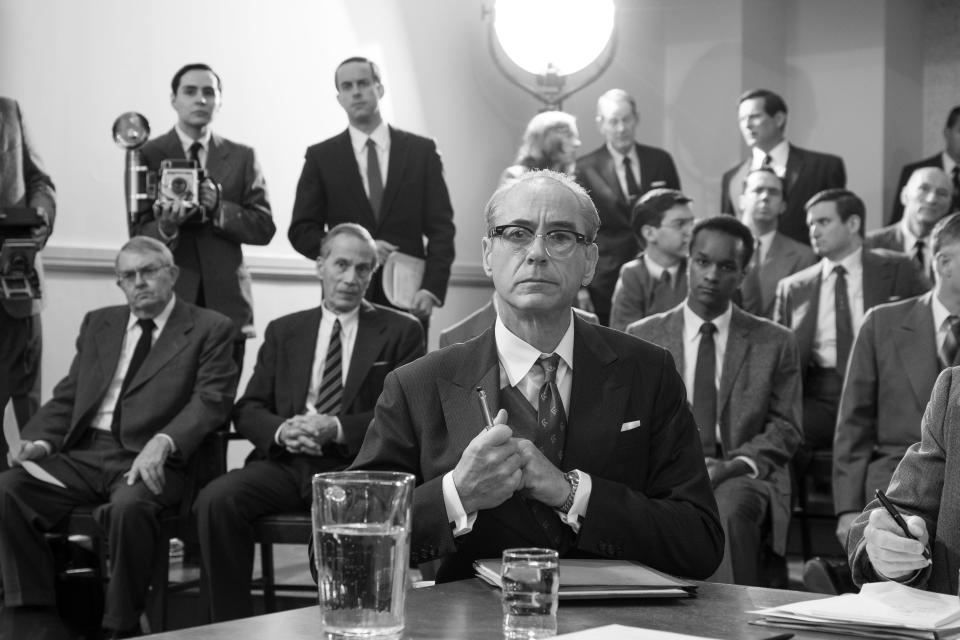
In mid-1963 Kennedy, then president, is urged by close advisers who admired Oppenheimer to bestow him with the Enrico Fermi Award, named after the famous Italian physicist. Kennedy was assassinated that November, and “one of the first decisions for now-President Lyndon Johnson was whether to go forward with this award, which was seen as a way to restore Oppenheimer’s reputation,” says Bird.
On Dec. 2, 1963, less than two weeks after the assassination, Johnson told the assembled crowd, “I know every person in this room grieves with me and with Dr. and Mrs. Oppenheimer that the late president, who gave his all for his country, could not present this award as he anticipated.”
This article originally appeared on USA TODAY: 'Oppenheimer' fact check: How accurate is Christopher Nolan's movie?

